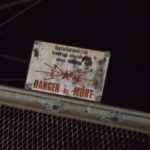A question I found myself pondering is “What makes affairs prone to trauma?” I know that there is some correlation yet wondered about the reason for that.
First, let me start by saying not every traumatic thing that happens to you results in PTSD. PTSD occurs after a traumatic event only about 8% of the time. That doesn’t lessen the pain or make it less serious.
This led me to consider what specific factors happen in affairs that make one prone to trauma.
Since affairs are personal matters, the damage is personal. It’s also intentional and surrounded by secrecy. When it happens it also produces sensations of helplessness and could happen again.
The more personal the relationships involved, the greater the risk of trauma. The moral conflict associated with affairs also contributes to the trauma features. You feel like you lost a life and can’t get it back.
This sense of helplessness is a big part of what makes affairs prone to trauma. You can’t control what your partner does and you can’t control how they feel. All you can do is try to cope with the aftermath and hope that things will eventually get better.
Then there is the abandonment issue. Abandonment of oneself and one’s needs: if this occurred during childhood (divorce or death of a parent or caregiver), then there was no one to validate and honor those needs. The message received was not only that we were abandoned but also that we needed to abandon ourselves in order to maintain a connection with our primary caretakers.
If affairs were accidental, one-time occurrences that you had power over, the risk of trauma would be significantly lower. When the event is talked about openly, and poses no threat to your morals or social circle, they would still be irritating, but no longer traumatic. When you know you can move past it, the threat is lessened.
When cheaters attempt to convince you that “it (the affair) meant nothing” or that it was “an accident”, they are downplaying the affair and its impact. At some level, they know that when it’s personal, immoral and intentional, the hurt is greater. It’s worse because you fail to see the warning signs and your trust is betrayed.
The trauma was also greater if you felt powerless to stop it (you were lied to, afraid of losing your spouse or children, afraid of getting caught). You feel like a victim at some level and helplessness can be paralyzing. Sometimes we would rather run away than stay and fight. This feeling works well with affairs as one gets “out of dodge” (moves) before they get hurt more. The problem is getting out doesn’t mean that one won’t come back for another round.
Another set of issues that makes affairs traumatic is when you’ve had some earlier life traumas. Those early life incidents and the emotional baggage with them are triggered by affairs. This triggers produces a feeling of re-victimization.
You could find yourself re-experiencing abandonment issues from earlier in your life all over again.
What is clear is that the sooner you take action in moving past the traumatic events and sooner you develop resiliency, the sooner you’ll adjust emotionally to what has happened.
In the video, “Overcoming Affair Trauma”, you’ll gain the skills needed in improving resiliency along with getting unstuck from the traumatic feelings. You can move past what happened to you and get your life back.
The next tough question for you, is “How soon do you want your life back?” Is this a decision you’ll keep putting off, or are you going to do something about it now?
A better question is when do you want to stop hurting?
Click and download your copy today.
Keeping It Real,
Jeff
















